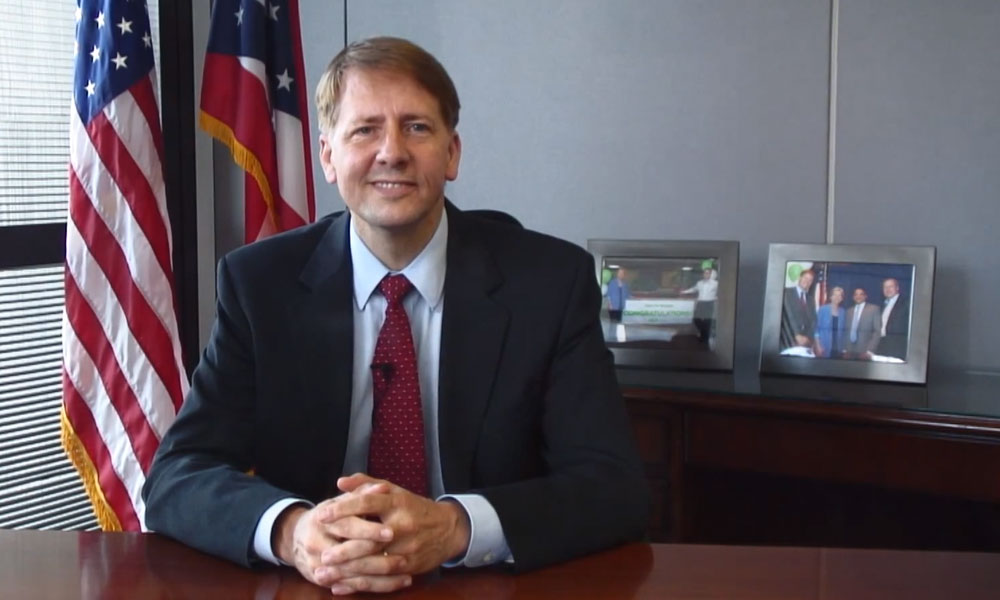
Senate Deal on Appointees Gets CFPB Head a Vote
To avert Majority Leader Harry Reid's threatened change to filibuster rules concerning presidential appointments, Senate Republicans agreed to allow some stalled candidates to come up for a vote. The approval of the first, the CFPB's Richard Cordray, drew a largely positive reaction.
When it comes to approving presidential appointees, frequent filibusters have increased the gridlock in the U.S. Senate in recent years—and a case before the Supreme Court could make things worse.
The Senate’s confirmation of Richard Cordray as director of the CFPB provides certainty for those affected by the Bureau’s work.
But a deal in the chamber this week offered some breathing room, and associations have largely spoken in favor of the appointments lawmakers settled on. More details:
The conflict
President Obama (like most other modern presidents) has relied on recess appointments—filling posts while Congress is not in session—to get around Senate stall tactics on approving federal appointments. He used the recess appointments to fill some especially contentious positions on the National Labor Relations Board (NLRB) and the top post at the newly formed Consumer Financial Protection Bureau (CFPB).
In January, however, a court decided that Obama’s NLRB appointments were constitutionally invalid—a ruling that led to wide association and union reaction, and eventually will be decided before the Supreme Court. The case is being brought forth by the U.S. Chamber of Commerce on behalf of Noel Canning.
The Senate’s move
This week, the conflict over the Senate’s holdup of appointments hit a new level. Senate Majority Leader Harry Reid (D-NV) threatened to push for a change in the chamber’s rules to allow the “nuclear option”—a 51-vote simple majority to end a filibuster instead of the current 60—to ease the appointment process for some jobs, though not judges.
“This is a moment in history when circumstances dictate the need for change,” Reid said on Monday, according to The Huffington Post. “It’s time for course correction that compels the two parties to work with each other instead of against each other.”
This proved unnecessary, however, after a bipartisan deal was struck on Tuesday and current CFPB chief Richard Cordray, a recess appointee put in place at the same time as the disputed NLRB appointees, finally earned Senate approval after more than two years of delays. (Senate Republicans’ opposition to naming Cordray were largely said to be because of an objection to the existence of the agency itself, rather than to Cordray.)
Cordray spoke about the appointment in a video shown below:
Obama, meanwhile, will make two new nominations to the National Labor Relations Board as part of the deal. In return, the Senate will hold unobstructed up-or-down votes on appointees to seven specific posts.
Associations React
In a statement provided to HousingWire, Credit Union National Association CEO Bill Cheney said that while his organization still takes issue with the CFPB’s impact on the credit union industry, CUNA has been happy with Cordray. “Director Cordray has proven himself to be receptive to credit unions and particularly our concerns about the impact of the actions on our cooperative financial institutions,” he said.
The American Land Title Association, meanwhile, said the move provides additional clarity for affected groups. “The Senate’s confirmation of Richard Cordray as director of the CFPB provides certainty for those affected by the Bureau’s work,” CEO Michelle Korsmo said.
Finally, the Native American Financial Services Association hoped that Cordray would continue to hear the association’s interests. “President Obama recently announced the formation of a new White House Council on Native American Affairs, which strengthens the federal government’s long-time commitment to upholding and respecting the inherent sovereignty of Native American nations,” Executive Director Barry Brandon said. “We hope the CFPB will partner with us in our efforts to protect the customers we serve while acknowledging and respecting our sovereignty.”
What does this mean for the legal battles? Well, it’s possible that, now that the logjam has been cleared, the Obama administration might ask to dismiss cases on the issue, but that would leave the lower-court ruling in place—which could force the issue all over again.
(YouTube screenshot)






Comments